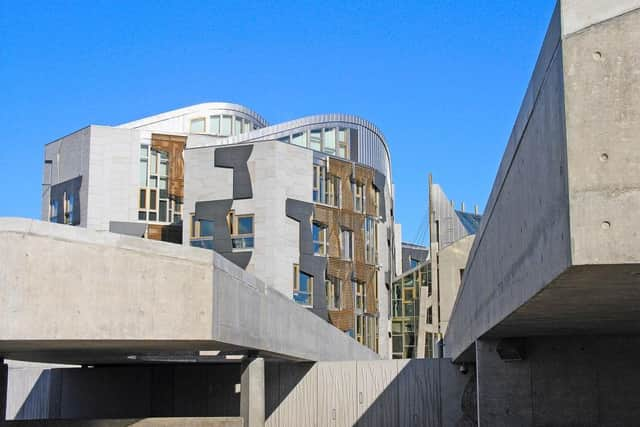New law risks 'serious mistake' with trust loophole, tax expert warns
New legislation designed to clarify the status of trusts in Scotland risks creating a vehicle that can be exploited by “money launderers” and “tax evaders,” according to a leading tax campaigner.
MSPs recently passed the first substantial reform of trust law in Scotland for the best part of a century, designed to make the legislation clear and coherent, but there are concerns that the changes could establish a “loophole” courtesy of the creation of what is known as a private purpose trust (PPT).
Advertisement
Hide AdAdvertisement
Hide AdVeteran tax lawyer, Dan Neidle, the founder of Tax Policy Associates, a think tank designed to improve tax policy and public understanding, has said there are questions around the introduction of the structures, which will not appear on public registers and are not required to file accounts.
The PPTs are being introduced via the Trusts and Succession (Scotland) Act 2024, which has already been approved at Holyrood, but Mr Neidle warned that Scotland, by accident, “is about to create an amazing new legal vehicle for money launderers, tax evaders and sanctions busters”.
Writing on the social media platform, X, he explained: “Private purpose trusts have been widely used abroad for tax evasion, money laundering and sanctions busting. They've never been permitted in the UK. But Scotland is about to introduce them. This seems a serious mistake.” Mr Neidle pointed to the widespread abuse that had been carried out using Scottish limited partnerships, and stressed that the potential for PPTs to be misused was “far greater”.
He has called on the Scottish Government to hold off on implementation until “appropriate safeguards” are put in place, adding that, in his opinion, the impact Scottish PPTs will have upon the whole of the UK means that the UK government should have considered blocking the legislation.
Juliet Swann from Transparency International also expressed concern, telling The Times: “The introduction of PPTs in Scotland risks creating a new way for criminals, sanctioned oligarchs and money launderers to hide their wealth.”


There is no suggestion that the act in question is intended to facilitate money laundering. It implements recommendations made in the Scottish Law Commission’s report on trust law, which stated that PPTs might be “very useful” in practice, such as commercial purposes “where they already appear to be in common use”. It added that “the fact that purpose trusts already appear to be permitted under Scots common law suggests that it has always been competent for a truster to include purposes of a private nature in a trust”.
A spokeswoman for the Scottish Government said: “We are clear that everyone should pay a fair share of tax and we support strong measures to tackle tax avoidance and evasion. That is why we engaged widely on the reforms.
“Private purpose trusts are already used. The Trusts and Succession (Scotland) Act 2024 will not change the position on tax evasion or money laundering. The measures in the act implement recommendations by the Scottish Law Commission, which considered that as PPTs are already recognised in law, there should be clear statutory provision that deals with them.”
A spokesman for the UK government said: “The UK government considers all Scottish Parliament legislation in the context of the devolution settlement including this act.”